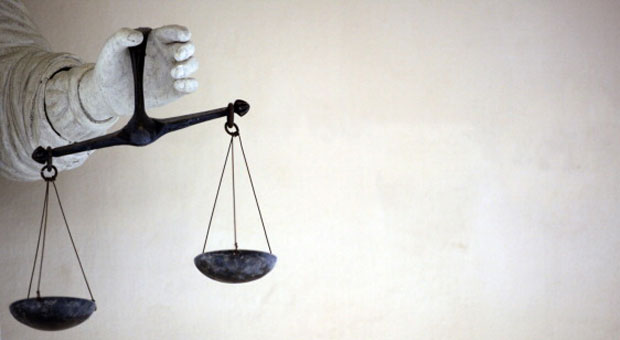Grand jury: how it works and why it is used
The decision not to indict two police officers has prompted widespread criticism of the grand jury system

A free daily email with the biggest news stories of the day – and the best features from TheWeek.com
You are now subscribed
Your newsletter sign-up was successful
The US grand jury system, used to decide whether to press criminal charges, is coming under increased scrutiny and criticism following two separate, but highly controversial, decisions not to indict white police officers responsible for killing unarmed black men.
Last week a grand jury in Missouri cleared officer Darren Wilson, who shot and killed teenager Michael Brown, and this week a jury in New York elected not to charge Daniel Pantaleo over the death of another black man, Eric Garner.
"The outrage that we see in Ferguson and now in New York raises the question whether the system is protecting white police officers over black victims," said Terry Gilbert, a civil rights lawyer in Cleveland and a board member of the National Police Accountability Project.
The Week
Escape your echo chamber. Get the facts behind the news, plus analysis from multiple perspectives.

Sign up for The Week's Free Newsletters
From our morning news briefing to a weekly Good News Newsletter, get the best of The Week delivered directly to your inbox.
From our morning news briefing to a weekly Good News Newsletter, get the best of The Week delivered directly to your inbox.
So, why do grand juries exist and why are they held in secret?
How does it work?
A grand jury is not tasked with determining the guilt of a defendant, but is instead used to establish whether or not there is enough evidence to go to trial. As a result, it has a lower standard of proof than a criminal trial. The jury is only expected to find "probable cause" for an indictment while a trial verdict needs to find a defendant guilty beyond reasonable doubt.
There is no judge present during grand jury proceedings and only the prosecutor presents evidence and witness testimony. The only court officials present are a bailiff and a stenographer. The number of jurors that comprise a grand jury varies from state to state, but they number between 16 to 23 people. A unanimous decision is not required to deliver a ruling, but a two-third or three-quarter majority is needed, depending on the state.
A free daily email with the biggest news stories of the day – and the best features from TheWeek.com
Why does it exist?
The grand jury was historically devised as way of protecting citizens against oppression, explains Sandra Guerra Thompson, a criminal law professor at the University of Houston Law Center in the Houston Chronicle.
"The idea is that no one should have to account for a serious crime unless a group of their peers have authorised the prosecution to go forward," she said.
How is it different from a preliminary hearing?
A grand jury serves a similar purpose to a preliminary hearing, in terms of establishing if there is evidence to proceed to trial. However, while preliminary hearings are open to the public, grand jury proceedings and the evidence presented are strictly confidential and jurors are legally bound by confidentiality agreements.
Why is it held behind closed doors?
Legal practitioners argue that proceedings are held in private in order to encourage witnesses to speak openly and without fear of reprisals while also protecting a defendant's identity in case if an indictment is not made.
Paul Cassell, a criminal law professor, argues that the secrecy ensures that the grand jury process is fair. "If the grand jury operated openly, then it would be easy for witnesses to tailor their testimony to what other witnesses had said, making it difficult to determine the truth," he writes in the Washington Post.
Criticism of the system
Grand juries "disproportionately indict young African-American men, and they usually do it very quickly," argues Kaimipono Wenger in the Daily Beast. Lawyers for the families of Michael Brown and Eric Garner have pointed out that federal grand juries issue indictments in over 99 percent of cases, and so ask why no indictment was made when the defendants were two white police officers.
Campaigners are calling for independent prosecutors to be appointed instead of local lawyers - particularly when the defendant is a police officer - in order to avoid a conflict of interest. Prosecutors are often reluctant to investigate the police department they have close relationship with, Gilbert told the National Journal.
As well as the secrecy, grand juries are also criticised for their jury selection process. In most states, jurors are selected at random. However, in Texas and California a "key man system" is in place where judge can appoint a commissioner who selects the grand jury members. This practice is widely criticised for increased bias among jurors, says Thompson.